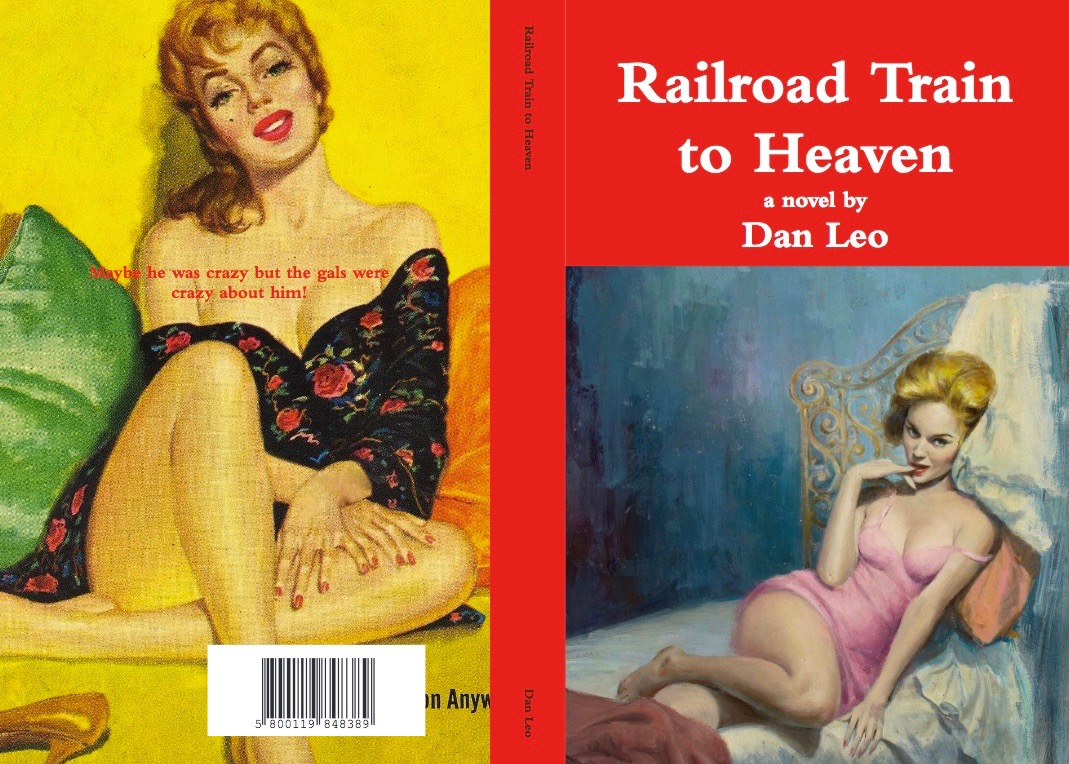“I seen God last night,” said Gilbey the Geek.
“Oh, Christ,” said Angie the retired whore.
“Not Christ, Angie, but God.”
“Jesus, Mary and Joseph.”
“No, just God, Angie. The big guy. I seen him. Last night. In my room.”
“Listen, Gilbey,” said Angie, “No offense, but I just can’t take your idiotic bullshit right now, so do me a favor and just drink your bock and don’t talk to me.”
“All right, Angie. But I seen him. Last night. In my room. God.”
“You’ll be seeing stars you say just one more word, Gilbey. I swear to God.”
“That’s who I seen. God.”
“Shut the fuck up, Gilbey.”
“Well, okay, Angie. I was only saying.”
“Zip it.”
Even Gilbey could tell that Angie really meant it this time, so he turned away. The ventriloquist Waldo McGee was sitting there to Gilbey’s right, and as usual Waldo had his dummy Mickey Pumpernickel sitting on his lap.
“Hey, Waldo, guess what?”
“What’s that, Gilbey?”
“I seen God last night.”
“That’s great, Gilbey.”
“No, I really seen him. He showed up in my room.”
“That’s swell, Gilbey.”
“He was like all shiny,” said Gilbey.
“Shiny, huh?”
“Yeah, kind of like a big shiny light.”
“That’s really great, kid.”
“Yeah, I thought it was really something,” said Gilbey.
“Hey, Gilbey,” said Waldo, “I gotta go strangle the worm. Keep an eye on Mickey Pumpernickel for me.”
“I’ll keep an eye on him,” said Gilbey.
“Here, put him on your lap till I get back. And don’t let nobody touch him.”
“I won’t, Waldo.”
Gilbey sat Mickey Pumpernickel on his lap, and Waldo staggered off to the men’s room. This was Monday, Waldo’s one night off from his steady gig as compère at the Prince Hal Room over at the Hotel St Crispian on Bedford Street, the one night when he could let loose and tie what he called “a good old country load on”, and he was already halfway there at only six-thirty in the evening.
Gilbey heard a whisper: “Hey, Gilbey.”
Who was it? Was he hearing things? Or was it God, whispering to him?
“Down here,” Gilbey,” said the whispering voice.
Gilbey looked down, and Mickey Pumpernickel looked up at him.
“Don’t talk,” said Mickey, “or these bums in this joint will think you’re crazier than they already think you are. Just nod your head.”
“Okay,” said Gilbey.
“I said don’t talk. Just nod your head.”
“Sorry,” said Gilbey.
“What’d I just tell you? Now don’t say another word. Just nod your head.”
Gilbey just nodded his head.
“I heard what you said, Gilbey,” said Mickey Pumpernickel. “And I just want to say I believe you.”
Gilbey started to say something again but Mickey quickly cut him off.
“I said don’t say nothing.”
Gilbey said nothing.
“Just nod your head.”
Gilbey nodded his head.
“You, my friend,” said Mickey, “have been vouchsafed a very special gift. You have seen God. Now you want my advice? Clam up about it. Keep it to yourself. You don’t got to advertise it. But know this. That you are now one of the elect. One of the very few. I see you’re getting ready to say something again, but don’t. Just nod your head.”
Gilbey nodded his head again.
“Okay, that’s all,” said Waldo. “Now relax, enjoy your bock. Because you’re walking with the big man now.”
Gilbey nodded.
“You can stop nodding now,” said Waldo. “It looks weird.”
Gilbey stopped nodding.
“These bums in here,” said Mickey. “They don’t know nothing. But you do. And I do.”
Gilbey nodded.
“I said stop nodding,” said Mickey Pumpernickel. “Just sit there, and drink your bock.”
Gilbey remembered not to nod, and he took a drink of his bock.
He looked down at Mickey Pumpernickel and Mickey gave him a wink.
Mickey Pumpernickel understood.
{Please go here to read the “adult comix” version in A Flophouse Is Not a Home, illustrated by the illustrious rhoda penmarq…}





